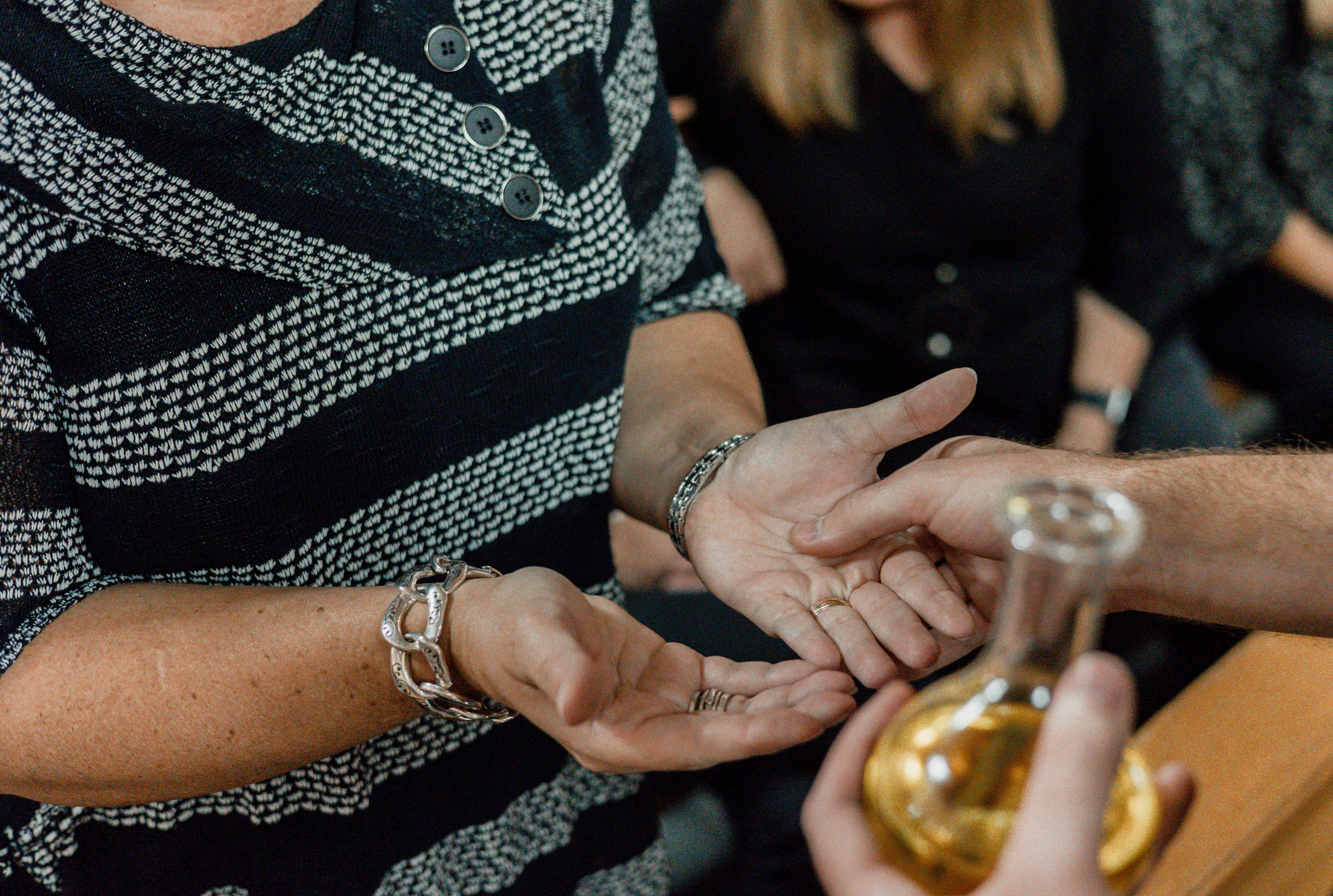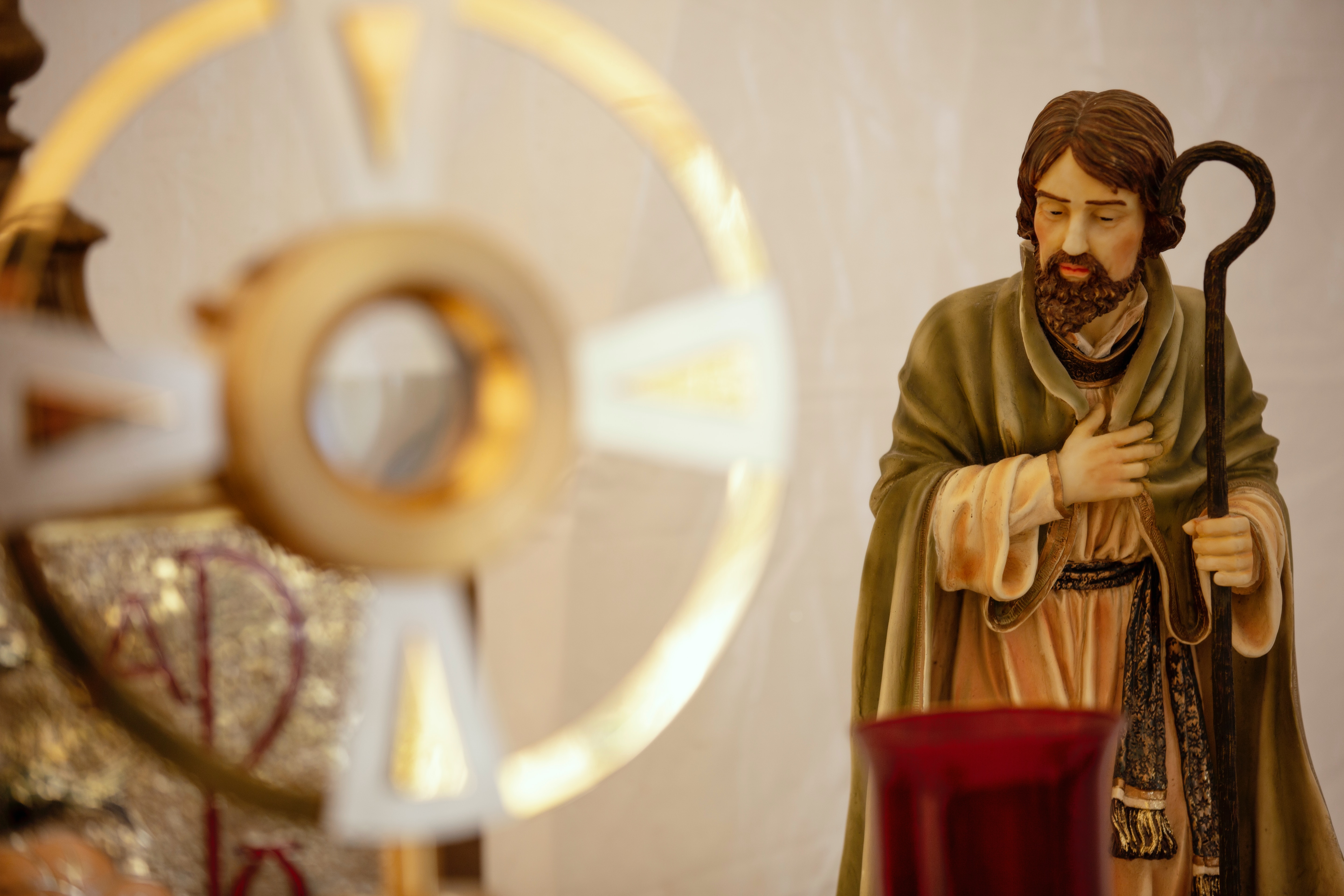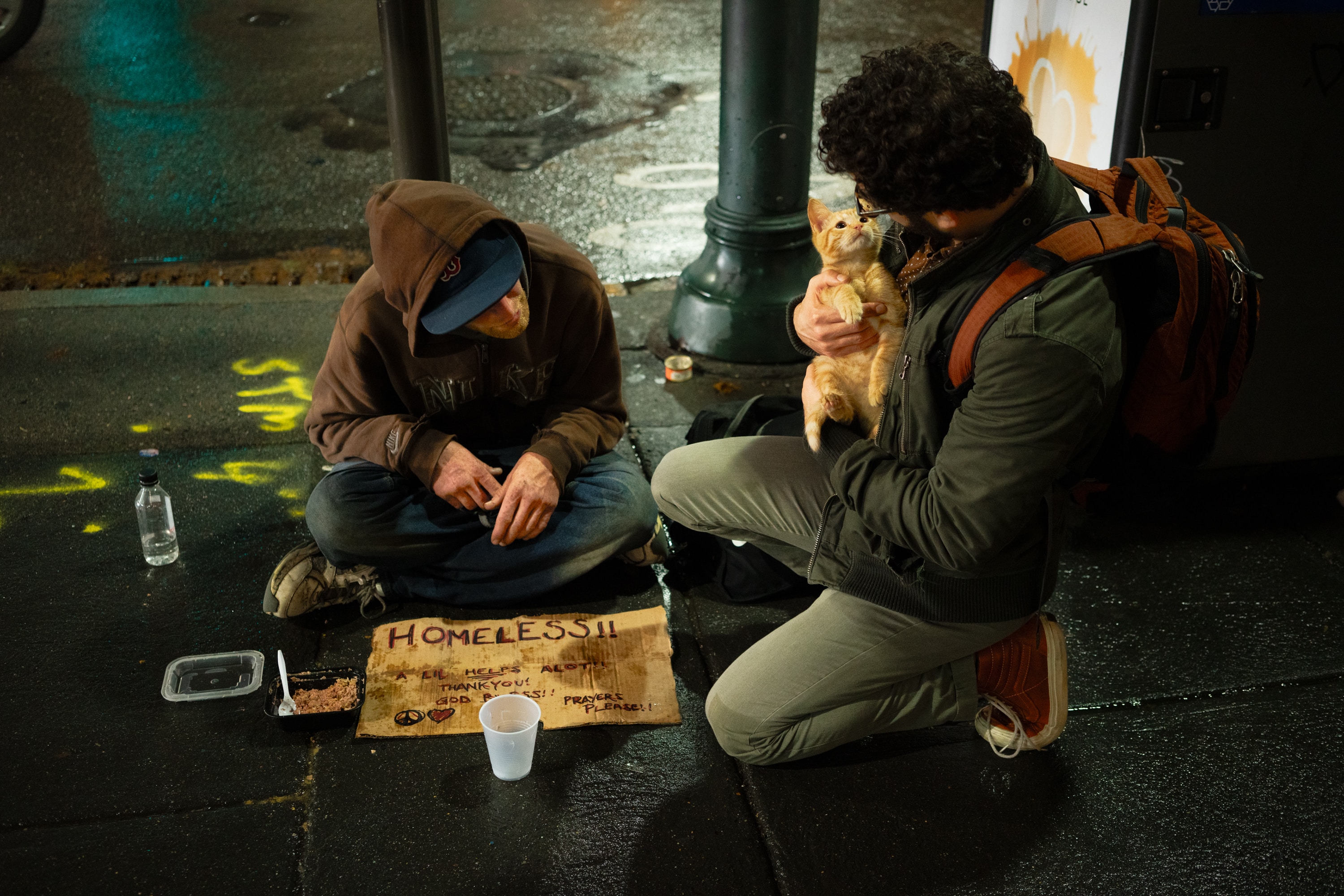Every morning, as I brush my teeth or make my bed, I say a personal litany which has developed over a period of time. My prayers include the petition, “Come again, Lord Jesus,” And when I think of what the return of Christ will entail for those who do not believe, it naturally leads to the fervent prayer, “Jesus, I trust in you!” The one prayer always leads to the other.
Today’s Mass readings are sobering, but hopeful. Humankind has been diagnosed by God with a life-threatening illness. It is bad news. Our sin, untreated, will lead us to eternal death. But then there is the Good News. In God’s great mercy, there is a remedy available to us!
Jesus Christ is the Divine Physician who can save us from a diagnosis of a terminal spiritual illness. We would be wise to foster a deep and trusting relationship with our “Doctor,” so that we can be more totally convinced that His remedy will really heal us, especially when the treatment gets tough, and we are tempted to give up and do things our own way.
When the Bible speaks about tribulation, the end of the world, and God’s judgment upon humanity, it is a wake-up call. It is a reality we may be reluctant to face, but the Church clearly tells us: “The message of the Last Judgment calls men to conversion while God is still giving them ‘the acceptable time, . . . the day of salvation.’ It inspires a holy fear of God and commits them to the justice of the Kingdom of God. It proclaims the ‘blessed hope’ of the Lord’s return…” (CCC, 1041).
The time to get serious about deep and life-changing conversion is now. And what joys are in store for us when we do, both in this world and especially in the next! I don’t know what the new heavens and the new earth will look like (but it sounds awesome!), and I don’t know what trials I, personally, will have to undergo before I come before the judgment seat of God, but I will try to cooperate with my Physician, so that I might be healed. The rest—the future, judgment, eternal outcome—I will leave in His loving and capable hands.
Todas las mañanas, mientras me cepillo los dientes o tiendo la cama, rezo una letanía personal que he ido desarrollando a lo largo del tiempo. Mis oraciones incluyen la petición: “Ven de nuevo, Señor Jesús”. Y cuando pienso en lo que el regreso de Cristo implicará para aquellos que no creen, naturalmente me lleva a la oración ferviente: “¡Jesús, en ti confío!” Una oración siempre lleva a la otra.
Las lecturas de la Misa de hoy son sombrías, pero esperanzadoras. Dios ha diagnosticado a la humanidad una enfermedad que amenaza su vida. Es una mala noticia. Nuestro pecado, si perdura sin tratamiento, nos llevará a la muerte eterna. Pero luego viene la Buena Noticia: ¡En la gran misericordia de Dios, hay un remedio disponible para nosotros!
Jesucristo es el Médico Divino que puede salvarnos del diagnóstico de una enfermedad espiritual terminal. Sería prudente que fomentemos una relación profunda y de confianza con nuestro “Médico”, para que podamos estar más convencidos de que su remedio realmente nos curará, especialmente cuando el tratamiento se vuelve difícil y nos sentimos tentados a rendirnos y hacer las cosas a nuestra manera.
Cuando la Biblia habla de la tribulación, el fin del mundo y el juicio de Dios sobre la humanidad, es una llamada de atención. Es una realidad que tal vez nos resistamos a afrontar, pero la Iglesia nos dice claramente: “El mensaje del Juicio final llama a la conversión mientras Dios da a los hombres todavía ‘el tiempo favorable, el tiempo de salvación’. Inspira el santo temor de Dios. Compromete para la justicia del Reino de Dios. Anuncia la ‘bienaventurada esperanza’ de la vuelta del Señor…” (CIC, 1041).
Ahora es el momento de tomar en serio una conversión profunda que cambie nuestra vida. ¡Y qué alegrías nos esperan cuando lo hagamos, tanto en este mundo como, especialmente, en el próximo! No sé cómo serán los nuevos cielos y la nueva tierra (¡pero suena maravilloso!), y no sé qué pruebas tendré que atravesar yo personalmente antes de comparecer ante el tribunal de Dios, pero trataré de cooperar con mi Médico para poder sanarme. El resto —el futuro, el juicio, el resultado eterno— lo dejaré en Sus manos amorosas y capaces.
 A lover of Jesus Christ, a wife, and a mother of five, Christine is the author of Everyday Heroism: 28 Daily Reflections on the Little Way of Motherhood. She is a graduate of Franciscan University, an instructor for the Institute for Excellence in Writing, and an experienced catechist. Thrilled to have recently become grandparents, she and her husband currently live in Upstate, NY. Visit her author webpage at christinehanus.com
A lover of Jesus Christ, a wife, and a mother of five, Christine is the author of Everyday Heroism: 28 Daily Reflections on the Little Way of Motherhood. She is a graduate of Franciscan University, an instructor for the Institute for Excellence in Writing, and an experienced catechist. Thrilled to have recently become grandparents, she and her husband currently live in Upstate, NY. Visit her author webpage at christinehanus.com
Feature Image Credit: Aron Visuals, unsplash.com/photos/selective-focus-photo-of-brown-and-blue-hourglass-on-stones-BXOXnQ26B7o












